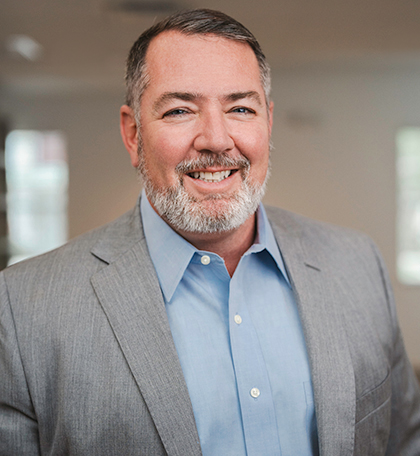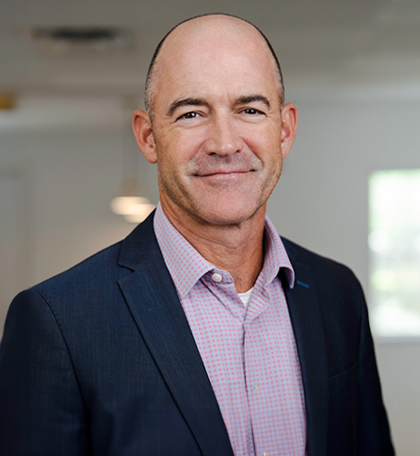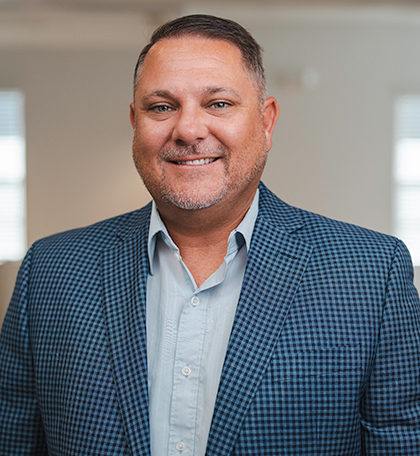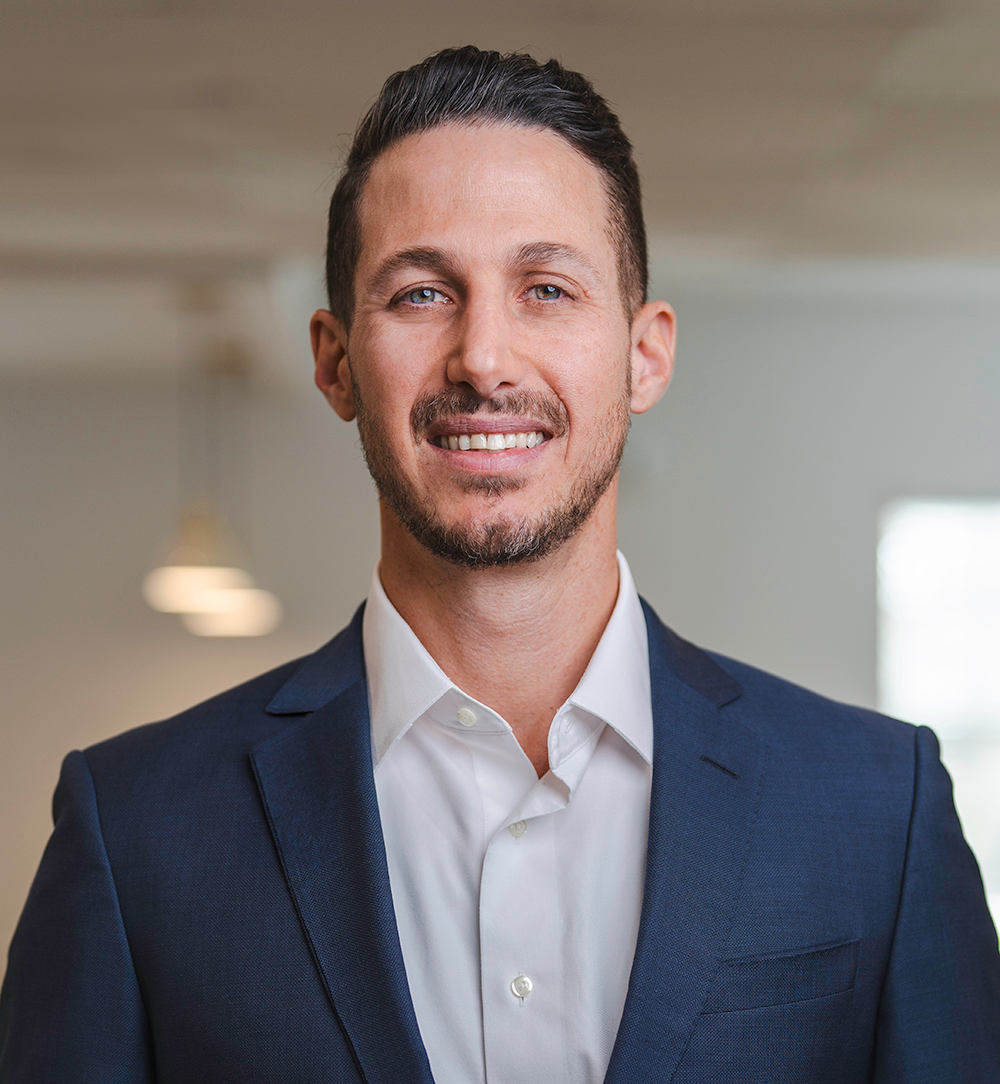Transcript:
To retire early, I think the most obvious one, and the one that we talk about a lot, is obviously spending less than what you make and increasing the amount that you’re saving. You can do that through a variety of ways, which we’ll talk about, whether it be just into a savings account, your retirement plan through work, or an IRA. There are different avenues that you can save through, but obviously, saving early and as much as possible increases your chances of being able to retire early. I think that most people would love the idea of retiring early. What are some things that younger people can do now to try to retire early?
Starting early: tips for young savers. Start small is my main focus, especially with the younger folks that I deal with. It might be 25 bucks a month, it might be 100 bucks a month, but just get started. Don’t wait. You have a lot of time for your investments to grow when you start early. Other than saving, the next biggest thing is using time on your side. The younger you can start, the better. And as Kyle said, it may not be much to begin with, but over time, you let the money grow through proper investing and compounding growth. Being able to sock away $50, $100, however much you can, especially in those early years, will actually go a lot farther than a bigger savings 20 years later.
Right, yeah. I’ve seen a lot of material that sort of highlights that the first even $10,000 and then especially the first $100,000 is like the hardest to get. So whenever you’re younger, what are some things? I mean, it’s very easy, I think, to tell people will start early, but how can they really do that? It’s more difficult than it sounds.
I believe it is, and it can be. Automating savings and investment. Maybe you just don’t know how. The best thing you can do is to set up a recurring monthly transfer to your IRA or whatever type of savings account you’re going to use. By setting up that monthly recurring transfer, it takes all the complexity and difficulty out of it, so you don’t even have to think about it. Every month, you have that say $100 transferred to your brokerage account or the IRA, and you can even set it up to automatically be put into an S&P 500 type fund.
Well, yeah, and then you won’t miss it that way, right? Exactly. If it’s already being done from the very beginning, it’s like it was never even there. You won’t miss it. It’s different where if you started it years down the line and you knew you had that extra money coming in and all of a sudden it’s not there, you’ll feel that. But if you do it from the get-go, just like having taxes withheld from your paycheck, same concept. You won’t know it’s there until it comes back.
One of the things that I employ, even for myself, is the money that’s put away. I don’t even really use a savings account. I put everything into a nonqualified account, but even with that, I just consider that as money that I don’t have.
Yeah, that’s a good way to put it, and it is going to be very rewarding when you are ready to tap into that money. Kind of out of sight, out of mind, or sometimes people in our industry say set it and forget it. Similar type concept.
So Kyle, also, there are some balancing enjoyment and financial discipline. People out there, I’ve seen some financial advice on YouTube and stuff like that. It’s like cut out your daily coffees that are like $5 and $7 and stuff like that. Would you think people should go that far, or do you disagree with that?
I’m not a fan of the extremes. As long as you keep to a relatively simple budget and you stay within that budget, I don’t have a problem with my clients going out and spending that $7 or $8 on coffee. But again, as long as they’re not using their credit card that they’re not paying off every single month to go buy that coffee or go buy the groceries. I agree. I hate having to micromanage or be that person that is the hand on the shoulder of a client saying you got to cut these things out. Being able to work that into your budget is much more fulfilling. But making sure that they’re sticking to a budget or having them come up with that budget and sticking to it is going to be better than trying to talk to them about canceling Hulu, these subscriptions, and no more coffee. That’s not what we’re here for.
Right. And we’ve talked about it on previous podcasts about the budget software. Once I help you get the budget set up, I don’t really look at it anymore. Yes, I have access to it, but that’s for you. That’s for the client. That’s for you to use on a daily basis or weekly basis, however often you’re tracking that budget. So I typically, unless we’re doing a semi-annual or annual meeting, I’m not looking at what you’re doing from a budget standpoint week to week. So it really does fall back on you. If you want to go out and buy that coffee, by all means, go out and buy the coffee.
Okay, let’s move on to what if planning for retirement in your 40s and 50s. You’re in your 40s and 50s already and you want to retire early. What are some things that you can do then? This is really crunch time, especially if you’re trying to retire early. Hopefully, you’ve done something, but you’re not alone if you haven’t. There’s plenty out there that may feel like they’re behind on their savings and they may not be able to. That’s when you really have to be disciplined and save as much as possible and use investing on your side. Come up with a goal of saving a certain amount each month, put it into some type of investment allocation, and stick to that. Let those last years of working do the lift. It could be something as simple as taking advantage of company benefits like matching into your 401k or company profit sharing. Things like that will help the older individuals as well as the younger, but make sure that you’re at least getting that free money from a company match.
In the clients that you work with who have the goal of retiring early, could you put a number on how many are successful? I don’t know offhand a specific number, but we are seeing a considerable amount coming to us saying they want to retire early. We want to make sure that they have a proper financial plan in place to show them the probability or likelihood they’ll be able to do that and if they may have to make any sacrifices if they decide to retire early. We can do some scenario analysis and show them what their income spending could be like if they retire at 60 versus 62 or whatever age. We can do some of those scenarios, showing them how much more they might be able to spend during retirement if they work just an extra two years. You’d be surprised what an extra couple of years will do to someone’s financial plan.
I know that everyone’s different, but is there a particular age that you’ve seen a lot of people shoot for to retire? I would say, and I’d be interested to hear Kyle’s opinion, but I would say 55 or 60 or somewhere in there. It seems like that age is coming down a little. What do you think?
It definitely is. I’ve got, I think, three just off the top of my head that I’ve met with in the last two or three months that are in their early 50s or mid-50s. They’re ready. They’re ready now and trying to figure out if it’s 55, 57, or 60. They’re 52, 53 years old, so trying to play around with the numbers. For instance, there’s one that’s about 1.5 million. They’re 52 and 53, a married couple, and I said if you guys want to go at 55, let’s do it. They’re very simple. They don’t spend a lot of money. They’ve got a substantial nest egg in their early 50s. Then yeah, let’s go ahead and do it. But if somebody has 800,000 to a million and is accustomed to a $150,000 income for the year, probably not going to be able to retire at 57 or 58. We may need to push that back to 63 or 65.
Yeah, I totally agree. It really depends on their lifestyle. Someone could potentially retire off 500,000 if they had no real substantial mortgage or debt and lived a really simple lifestyle. But I’ve also seen people with 5 million who struggle with money because they spend a significant portion of that every year. And vice versa, you’ve got people that have 5 million but feel they don’t have enough. They’re not necessarily spenders either, but they just feel they don’t have enough.
So for someone who is in their mid-40s and has been contributing to their retirement plan, on a scale of 1 to 10, how hard would it be for them to retire at 55 or 60? How difficult is it?
A seven. I’m going seven. It depends on some of these things we’ve talked about. How much have they been contributing? How are they invested? If they’ve been really aggressive since they were 20 and they’ve got over 20 years of aggressive type returns, they may be more likely. But then what are they looking to spend during retirement? Retiring early really brings on a whole other complexity of problems for young retirees.
Yeah, I mean just going back to another example, I’ve got a 45-year-old with $800,000 in his 401k plan and a 45-year-old that has $25,000 in the 401k plan and doesn’t have anything in addition to that 401k plan. So opposite ends of the spectrum: 800,000 and 25,000. Even for the 800,000 45-year-old, it still may be relatively difficult to retire at 55 because of the income he has and the risk he took early on in his career from an investment standpoint to get to that point where he’s at right now.
Right, and then some of those challenges are how do you access your qualified accounts at a young age? There are certain laws or penalties that you need to be aware of before you can start withdrawing money from those accounts.
Yeah, I think 55 is pretty much the standard from an early retirement standpoint when it comes to the 401k and being able to access without penalty.
So we’ve talked about how, besides saving, investments can help you to retire early. How can they detract from you retiring early?
I would say if you’re overly aggressive right before retirement and all of a sudden you’re like, “Okay, I’m going to retire at 55,” and your plan looks good, but your investments are too aggressive and all of a sudden we hit a market recession or a big correction in the stock market and your portfolio is now 30% less than what it was a month ago. You definitely want to make sure that your portfolio is positioned for you to enter that retirement year so that way you don’t have to worry about market returns for those first couple of years of retirement or leading up to it.
And we’ve talked about this in our previous podcast as well, about the sequence of return risk. You go into retirement, you have two 65-year-olds that go in not necessarily in the same year, but they retire at 65. One retires and the market’s up 20%, the other one retires five years later at 65 and the market’s down 20%. Well, the one that retired in an up market more than likely is not going to run out of money, whereas the one that retired a few years later in a down market will more than likely have a better chance of running out of money, unfortunately.
Exactly. What type of healthcare and Social Security considerations do people forget about when retiring early?
What’s the biggest thing? Healthcare. Yeah, healthcare is probably the biggest and also one of the biggest concerns that young retirees and a financial planner may have for them is how they are going to cover the cost of private healthcare or do they have a job where their healthcare is going to be covered until they can get on Medicare, which doesn’t happen until 65. So you could be on private healthcare for a considerable amount of years depending on how young you retire.
And then thinking about how you fold in Social Security, we obviously want to do some calculations, especially for spouses, to see who should collect first or who should defer theirs. What do you think, Kyle?
Yeah, absolutely. Social Security is a big part of it as well. Not everybody thinks about it. We talk about healthcare as the biggest expense, but Social Security is probably the biggest guarantee you have from an income standpoint for a 25-30 year retirement. Planning around being able to maximize the income in Social Security is a big piece.
Other than figuring out how we’re going to pay for healthcare, the other part of that is working with a lot of government workers that may have a pension, making sure they’re going to reach pension age before retiring. Most of them already know that because they’ve been watching it for years since they began, so they’ll know all about it. But you definitely can help them do some calculations on when to start the pension or what type of rider or survivor benefit to add on to their pension for the benefit of their spouse.
If you retire early, the biggest issue is missing income, and Social Security takes care of part of that, but what are some other things that you can do to replace that income?
Yeah, you’ve got the guaranteed sources like Social Security and some of those that have a pension, but you also need to figure out your income strategy or withdrawal strategy from the portfolio. Is your portfolio generating income? When I look at generating income for retirees, I look at multiple asset classes. For somebody that maybe doesn’t have a pension, maybe we need to look into annuities. Do we look at real estate investments for higher net worth that may not be a liquid type investment but has enough of a portfolio there to put money into something that may not be liquid but generates more income than a traditional publicly traded stock or even a bond?
Both of you, I think, have mentioned Social Security being a guaranteed income source. How is it affected by retiring early? You’re missing out on some more earning years, I assume, but it’s not probably your prime earning years, so maybe it’s not affected that much. But is there any effect on it?
I suppose it could be your prime earning years or toward the tail end if you decide to retire early. That could definitely affect your calculation if you’re leaving some strong earning years on the table. But for some, it may not be worth it if they’re not enjoying their job or they’re burnt out. If you collect early, you could also be leaving money on the table, and that may not be the best benefit for yourself. Trying to delay it as long as possible, and there are health considerations and spousal considerations to factor into that as well.
Yeah, I look at life expectancy for the most part when it comes to helping people with figuring out how to maximize that Social Security strategy. If the life expectancy is there, I may tell somebody, “I think you have enough assets here to where we can generate an income for the next 3 or 4 years. Yes, we’re going to pull some of your assets down from your portfolio, but we’re going to get a higher amount from Social Security that is guaranteed through the government.” If we can get you a higher guaranteed paycheck for the rest of your life, I’d rather give you that guarantee that I can’t necessarily guarantee you on a portfolio that’s got stocks and bonds in it.
So I think that these nuggets of information have scratched the surface of retiring early, but you definitely need to talk to a financial advisor and find out more about how you can retire early in particular. With that, there are other resources on our website at Baswealthmanagement.com. You can always check that out, subscribe to our podcast, subscribe to our YouTube channel, and check out all the resources there. Don’t forget, you can also submit questions if you want us to address a certain question or topic on the podcast. You can send those to us at questions@Baswealthmanagement.com.
Thanks for your input, Kyle.
Thank you for having me.
I’m your host, Dustin Taylor.
I’m your co-host, Alex Wolfe.
And happy listening.




